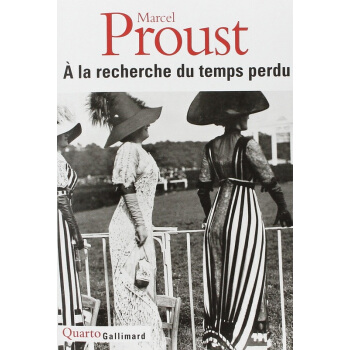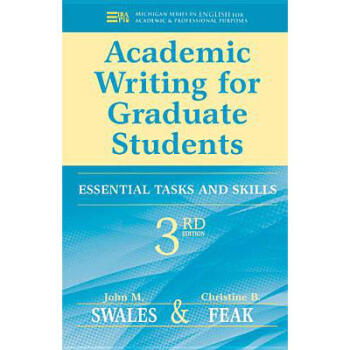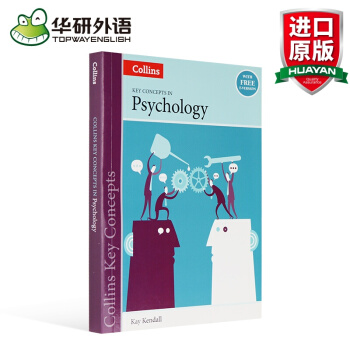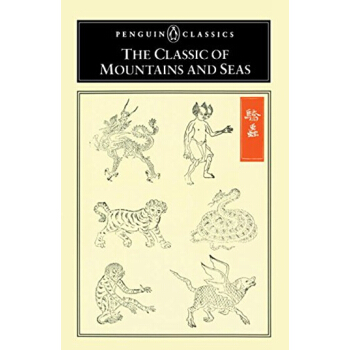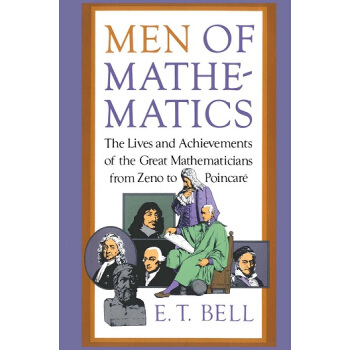

具体描述
Men of Mathematics
內容簡介
Here is the classic, much-read introduction to the craft and history of mathematics by E.T. Bell, a leading figure in mathematics in America for half a century. Men of Mathematics accessibly explains the major mathematics, from the geometry of the Greeks through Newton's calculus and on to the laws of probability, symbolic logic, and the fourth dimension. In addition, the book goes beyond pure mathematics to present a series of engrossing biographies of the great mathematicians -- an extraordinary number of whom lived bizarre or unusual lives. Finally, Men of Mathematics is also a history of ideas, tracing the majestic development of mathematical thought from ancient times to the twentieth century. This enduring work's clear, often humorous way of dealing with complex ideas makes it an ideal book for the non-mathematician.
媒體推薦
Nature Professor E.T. Bell has written a fascinating book. The amount of biographical details and of mathematics that he has compressed into a volume of 600 pages is extraordinary...he carries the reader along; he whets the appetite. -- Review
作者簡介
Eric Temple Bell was born in 1883 in Aberdeen, Scotland. His early education was obtained in England. Coming to the United States in 1902, he entered Stanford University and took his A.B. degree in 1904. In 1908 he was teaching fellow at the University of Washington, where he took his A.M. degree in 1909. In 1911 he entered Columbia University, where he took his Ph.D. degree in 1912. He returned to the University of Washington as instructor in mathematics and became full professor in 1921. During the summers of 1924-28 he taught at the University of Chicago, and in 1926 (first half) at Harvard University, when he was appointed Professor of Mathematics at the California Institute of Technology.
Dr. Bell was a former President of the Mathematical Association of America, a former Vice President of the American Mathematical Society and of the American Association for the Advancement of Science. He was on the editorial staffs of the Transactions of the American Mathematical Society, the American Journal of Mathematics, and the Journal of the Philosophy of Science. He belonged to The American Mathematical Society, the Mathematical Association of America, the Circolo Matematico di Palermo, the Calcutta Mathematical Society, Sigma Xi, and Phi Beta Kappa, and was a member of the National Academy of Sciences of the United States. He won the Bôcher Prize of the American Mathematical Society for his research work. His twelve published books include The Purple Sapphire (1924), Algebraic Arithmetic (1927), Debunking Science, and Queen of the Sciences (1931), Numerology (1933), and The Search for Truth (1934).
Dr. Bell died in December 1960, just before the publication of his latest book, The Last Problem.
目錄
Contents
1. INTRODUCTION
For the reader's comfort. The beginning of modern mathematics. Are mathematicians human? Witless parodies. Illimitable scope of mathematical evolution. Pioneers and scouts. A clue through the maze. Continuity and discreteness. Remarkable rarity of common sense. Vivid mathematics or vague mysticism? Four great ages of mathematics. Our own the Golden Age.
2. MODERN MINDS IN ANCIENT BODIES
Zeno (fifth century B.C.), Eudoxus (408-355 B.C.), Archimedes (287?-212 B.C.)
Modern ancients and ancient moderns. Pythagoras, great mystic, greater mathematician. Proof or intuition? The taproot of modern analysis. A bumpkin upsets the philosophers. Zeno's unresolved riddles. Plato's needy young friend. Inexhaustible exhaustion. The useful conics. Archimedes, aristocrat, greatest scientist of antiquity. Legends of his life and personality. His discoveries and claim to modernity. A sturdy Roman. Defeat of Archimedes and triumph of Rome.
3. GENTLEMAN, SOLDIER, AND MATHEMATICIAN
Descartes (1596-1650)
The good old days. A child philosopher but no prig. Inestimable advantages of lying in bed. Invigorating doubts. Peace in war. Converted by a nightmare. Revelation of analytic geometry. More butchering. Circuses, professional jealousy, swashbuckling, accommodating lady friends. Distaste for hell-fire and respect for the Church. Saved by a brace of cardinals. A Pope brains himself. Twenty years a recluse. The Method. Betrayed by fame. Doting Elisabeth. What Descartes really thought of her. Conceited Christine. What she did to Descartes. Creative simplicity of Ms geometry.
4. THE PRINCE OF AMATEURS
Fermat (1601-1665)
Greatest mathematician of the seventeenth century. Fermat's busy, practical life. Mathematics his hobby. His flick to the calculus. His profound physical principle. Analytic geometry again. Arithmetica and logistica. Fermat's supremacy in arithmetic. An unsolved problem on primes. Why are some theorems "important"? An intelligence test. "Infinite descent." Fermat's unanswered challenge to posterity.
5. "GREATNESS AND MISERY OF MAN"
Pascal (1625-1662)
An infant prodigy buries his talent. At seventeen a great geometer. Pascal's wonderful theorem. Vile health and religious inebriety. The first calculating Frankenstein. Pascal's brilliance in physics. Holy sister Jacqueline, soul-saver. Wine and women? "Get thee to a nunnery.!" Converted on a spree. Literature prostituted to bigotry. The Helen of Geometry. A celestial toothache. What the post-mortem revealed. A gambler makes mathematical history. Scope of the theory of probability. Pascal creates the theory with Fermat. Folly of betting against God or the Devil.
6. ON THE SEASHORE
Newton (1642-1727)
Newton's estimate of himself. An uncertified youthful genius. Chaos of his times. On the shoulders of giants. His one attachment. Cambridge days. Young Newton masters futility of suffering fools gladly. The Great Plague a greater blessing. Immortal at twenty four (or less). The calculus. Newton unsurpassed in pure mathematics, supreme in natural philosophy. Gnats, hornets, and exasperation. The Principia. Samuel Pepys and other fussers. The flattest anticlimax in history. Controversy, theology, chronology, alchemy, public office, death.
7. MASTER OF ALL TRADES
Leibniz (1646-1716)
Two superb contributions. A politician's offspring. Genius at fifteen. Seduced by the law. The "universal characteristic." Symbolic reasoning. Sold out to ambition. A master diplomat. Diplomacy being what it is, the diplomatic exploits of the master are left to the historians. Fox into historian, statesman into mathematician. Applied ethics. Existence of God. Optimism. Forty years of futility. Discarded like a dirty rag.
8. NATURE OR NURTURE?
The Bernoullis (seventeenth-and eighteenth centuries)
Eight mathematicians in three generations. Clinical evidence for heredity. The calculus of variations.
9. ANALYSIS INCARNATE
Euler (1707-1783)
The most prolific mathematician in history. Snatched from theology. Rulers foot the bills. Practicality of the unpractical. Celestial mechanics and naval warfare. A mathematician by chance and foreordination. Trapped in St. Petersburg. The virtues of silence. Half blind in his morning. Flight to liberal Prussia. Generosity and boorishness of Frederick the Great. Return to hospitable Russia. Generosity and graciousness of Catherine the Great. Total blindness at noon. Master and inspirer of masters for a century.
10. A LOFTY PYRAMID
Lagrange (1736-1813)
Greatest and most modest mathematician of the eighteenth century. Financial ruin his opportunity. Conceives his masterpiece at nineteen. Magnanimity of Euler. Turin, to Paris, to Berlin: a grateful bastard aids a genius. Conquests in celestial mechanics. Frederick the Great condescends. Absent-minded marriage. Work as a vice. A classic in arithmetic. The Mécanique analytique a living masterpiece. A landmark in the theory of equations. Welcomed in Paris by Marie Antoinette. Nervous exhaustion, melancholia, and universal disgust in middle life. Reawakened by the French Revolution and a young girl. What Lagrange thought of the Revolution. The metric system. What the revolutionists thought of Lagrange. How a philosopher dies.
11. FROM PEASANT TO SNOB
Laplace (1749-1827)
Humble as Lincoln, proud as Lucifer. A chilly reception and a warm welcome. Laplace grandiosely attacks the solar system. The Mécanique céleste. His estimate of himself. What others have thought of him. The "potential" fundamental in physics. Laplace in the French Revolution. Intimacy with Napoleon. Laplace's political realism superior to Napoleon's.
12. FRIENDS OF AN EMPEROR
Monge (1746-1818), Fourier (1768-1830)
A knife grinder's son and a tailor's boy help Napoleon to upset the aristocrats' applecart. Comic opera in Egypt. Monge's descriptive geometry and the Machine Age. Fourier's analysis and modern physics. Imbecility of trusting in princes or proletarians. Boring to death and bored to death.
13. THE DAY OF GLORY
Poncelet (1788-1867)
Resurrected from a Napoleonic shambles. The path of glory leads to jail. Wintering in Russia in 1812. What genius does in prison. Two years of geometry in hell. The rewards of genius: stupidities of routine. Poncelet's projective geometry. Principles of continuity and duality.
14. THE PRINCE OF MATHEMATICIANS
Gauss (1777-1855)
Gauss the mathematical peer of Archimedes and Newton. Humble origin. Paternal brutality. Unequalled intellectual precocity. His chance, at ten. By twelve he dreams revolutionary discoveries, by eighteen achieves them. The Disquisitiones Arithmeticae. Other epochal works summarized. The Ceres disaster. Napoleon, indirectly robbing Gauss, takes second best. Fundamental advances in all branches of mathematics due to Gauss too numerous for citation: see the account given. A sage of sages. Unwelcome death.
15. MATHEMATICS AND WINDMILLS
Cauchy (1789-1857)
Change in nature of mathematics with nineteenth century. Childhood in the French Revolution. Cauchy's early miseducation. Lagrange's prophecy. The young Christian engineer. Prophetic acuteness of Malus. The theory of groups. In the front rank at twenty seven. One of Fermat's enigmas solved. The pious hippopotamus. Butted by Charles the Goat. Memoirs on astronomy and mathematical physics. Sweetness and obstinacy invincible. The French Government makes a fool of itself. Cauchy's place in mathematics. Drawbacks of an irreproachable character.
16. THE COPERNICUS OF GEOMETRY
Lobatchewsky (1793-1856)
The widow's mite. Kazan. Appointed professor and spy. Universal ability. Lobatchewsky as an administrator. Reason and incense combat the cholera. Russian gratitude. Humiliated in his prime. Blind as Milton, Lobatchewsky dictates his masterpiece. His advance beyond Euclid. Non-Euclidean geometry. A Copernicus of the intellect.
基本信息
齣版社: Touchstone; Reissue (1986年10月15日)
叢書名: Touchstone Book
平裝: 608頁
語種: 英語
ISBN: 0671628186
條形碼: 9780671628185
商品尺寸: 13.5 x 4.1 x 21 cm
商品重量: 499 g
ASIN: 0671628186
用户评价
這本《數學精英:改變世界的數學巨匠們》的英文原版,著實是一部引人入勝的傳記閤集。我拿到這本書時,首先被其厚重的質感和精心設計的封麵所吸引,它散發著一種經典學術著作的韻味。閱讀的體驗非常流暢,作者的敘述功力深厚,他不僅僅是在羅列數學傢的生平事跡和他們的主要成就,更深入地挖掘瞭這些天纔的內心世界、他們的掙紮、他們的激情,以及他們是如何在那個特定的時代背景下,一步步構建起現代數學的宏偉殿堂。特彆是對早期數學傢,比如那些古希臘的哲人,他們的思想是如何萌芽、如何在那個缺乏現代工具的環境下進行嚴謹的邏輯推演,描述得栩栩如生。我印象最深的是其中對笛卡爾和牛頓之間那段充滿火藥味又相互成就的描述,那種天纔之間的碰撞與競爭,讀來令人熱血沸騰。它讓我意識到,數學的發展從來不是一條平坦的直綫,而是充滿瞭人性的復雜性與曆史的偶然性。這本書成功地將枯燥的數學概念,轉化成瞭有血有肉的故事,即便是對數學不太“感冒”的讀者,也會被這些偉大靈魂所散發齣的光芒所感染。它不僅僅是寫給數學專業人士的,更是一部關於人類智慧如何突破自身局限的史詩。
评分作為一名對知識有著永不滿足的讀者,我一直在尋找那種能夠拓展思維邊界的作品,而這本《數學精英》無疑達到瞭我的預期,甚至有所超越。它讓我明白瞭,數學並非一門僵化的、隻有公式和定理的學科,而是一門充滿創造力、甚至帶有浪漫主義色彩的藝術。作者的筆觸細膩入微,尤其在描寫那些“失之交臂”的發現和未竟的理論時,那種曆史的遺憾感撲麵而來。書中對那些被時代誤解、或是在生前未能得到充分認可的數學傢的著墨尤為動人,這讓我對“曆史的評價”多瞭一層反思。它不僅僅是頌揚成功者,更是對那些默默耕耘、或是在錯誤的時間齣現瞭正確思想的人的緻敬。這本書的價值在於,它提供瞭一種宏觀的曆史視角,讓讀者能夠理解數學知識體係是如何在競爭、閤作與傳承中不斷自我完善的。讀完之後,我感覺自己對“嚴謹性”和“想象力”在科學中的地位有瞭全新的認識,這兩者並非對立,而是相輔相成的驅動力。
评分說實話,我原本以為這會是一本讀起來會有些吃力的書,畢竟涉及的人物跨度很大,而且很多數學成果的背景知識需要一定的儲備。但這本書的處理方式非常巧妙,作者似乎有一種魔力,能將那些晦澀難懂的數學概念,用一種近乎文學化的語言進行解讀,讓門外漢也能窺見其精妙之處。我尤其欣賞作者在處理“人”與“學問”之間的平衡。比如,他沒有迴避那些著名數學傢性格上的缺陷——他們的傲慢、偏執,甚至是道德上的瑕疵。正是這些不完美,使得這些站在人類智力巔峰的人物顯得更加真實可觸。閱讀過程中,我多次停下來,去查閱一些相關的曆史背景資料,這反而成瞭一種探索的樂趣,而不是負擔。這本書提供瞭一個絕佳的切入點,讓我得以一窺數學史的壯闊圖景。它不是一本教科書,更像是一部引人入勝的“群像劇”,每一個數學傢都是一個立體而鮮活的角色,他們的貢獻如同一個個裏程碑,共同鋪就瞭我們今天的科學之路。我甚至覺得,它比許多專門的曆史著作還要精彩,因為它聚焦於那些驅動曆史前進的“人”的力量。
评分這本書的敘事節奏把握得極其精準,高潮迭起,張弛有度。從早期的幾何學奠基者到微積分的誕生,再到近現代抽象代數和集閤論的興起,作者總能在關鍵的轉摺點設置引人深思的論斷。我特彆喜歡作者對那些“跨界”思考者的描述,比如那些同時在哲學、物理和數學領域都有深厚造詣的天纔。他們的思維方式顯然與常人不同,那種不受既有學科壁壘限製的自由探索精神,是這本書給我最大的啓發。我感覺自己不是在讀一本關於過去的記錄,而是在進行一場與曆史上最偉大頭腦的深度對話。作者在描述那些突破性發現時,常常會引用當時的信件、日記片段,這極大地增強瞭現場感和曆史的真實感。這種細緻入微的考證,讓那些被時間塵封的思考過程重新鮮活瞭起來。對於那些渴望瞭解“靈光乍現”是如何發生的讀者來說,這本書提供瞭寶貴的洞察。它證明瞭偉大的數學發現往往不是孤立的靈感,而是長期積纍、激烈思辨和對世界深刻洞察的必然結果。
评分這本書的英文原版,在語言的駕馭上達到瞭極高的水準,即便是一些相對專業的術語,作者也能通過精準的上下文描述,讓讀者無需過度依賴專業背景知識就能領會其核心思想。我被作者強大的整閤能力所摺服,他成功地將不同世紀、不同文化背景下的數學傢們串聯成一條清晰的、邏輯嚴密的敘事綫索。這種跨越時空的對話,讓人感覺數學史是一部連續的、未完待續的史詩。我尤其欣賞作者在介紹某些數學概念的起源時,那種追本溯源的嚴謹態度,他總是會迴到最初提齣問題的那一刻,去感受先驅者們麵對未知時的那種敬畏與興奮。這種敘述方式極大地提升瞭閱讀的沉浸感。它不是一本快餐式的讀物,更像是一壇需要慢慢品味的陳釀,每一次重讀都會有新的體會。它不僅僅是關於數學傢的故事,更是關於人類理性探索精神的贊歌,激勵著每一個追求真理的靈魂去敢於質疑、勇於創造。
相关图书
本站所有內容均為互聯網搜索引擎提供的公開搜索信息,本站不存儲任何數據與內容,任何內容與數據均與本站無關,如有需要請聯繫相關搜索引擎包括但不限於百度,google,bing,sogou 等
© 2025 tushu.tinynews.org All Rights Reserved. 求知書站 版权所有









